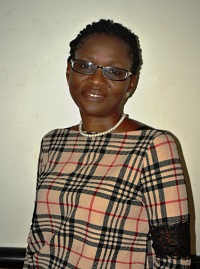 |
OSUN STATE UNIVERSITY, P.M.B 4494, OSOGBO NIGERIA |
The Management wishes to confirm the regime of fees payable during the 2016/2017 academic session by all students. For ease of reference, the table of fees as applicable to all students is detailed hereunder:
|
ITEM |
NON-SCIENCE |
SCIENCES/ANATOMY/ |
MEDICINE/NURSING/LAW |
|||
|
Fresh |
Returning |
Fresh |
Returning |
Fresh |
Returning |
|
|
Tuition |
N75,000.00 |
N75,000.00 |
N75,000.00 |
N75,000.00 |
N100,000.00 |
N100,000.00 |
|
ICT |
5,000.00 |
5,000.00 |
5,000.00 |
5,000.00 |
5,000.00 |
5,000.00 |
|
Library |
5,000.00 |
5,000.00 |
5,000.00 |
5,000.00 |
5,000.00 |
5,000.00 |
|
Games |
5,000.00 |
5,000.00 |
5,000.00 |
5,000.00 |
5,000.00 |
5,000.00 |
|
Examinations |
5,000.00 |
5,000.00 |
5,000.00 |
5,000.00 |
5,000.00 |
5,000.00 |
|
Laboratory/ |
- |
- |
5,000.00 |
5,000.00 |
5,000.00 |
5,000.00 |
|
College Handbook |
500.00 |
- |
500.00 |
- |
500.00 |
- |
|
Caution |
10,000.00 |
- |
10,000.00 |
- |
10,000.00 |
- |
|
TOTAL |
N105,500.00 |
N95,000.00 |
N110,500.00 |
N100,000.00 |
N135,500.00 |
N125,000.00 |
TERMS OF PAYMENT AND REGISTRATION FOR 2016/2017
- The payment of school fees henceforth is by Interswitch WebPAY Platform through the use of Interswitch enabled Debit/ATM cards. For more information, read or download below, the Step-By-Step Guide on How to Use the UNIOSUN WebPAY Platform. You can also read the WebPAY Frequently Asked Questions and Tips here for further information.
- Other payments such as Portal Access and Late Registration shall also be by the use of Interswitch WebPAY Platform.
- Any student who failed to register and comply with the registration deadlines will forfeit the semester;
- All Fresh Students must obtain CLEARANCE from their respective College Secretaries before they can be activated to make payments of tuition and other allied fees;
- All Fresh Students are expected to make full payment by Sunday, December 31, 2016;
- Any fresh student who failed to register on or before December 31, 2016, would forfeit the provisional admission offer.
- All students in the College of Law, Ifetedo Campus are required to pay their "Accomodation Fees" of N60,000.00 (Sixty thousand Naira ONLY) using the following account details;
Title of Account: Osun State University, College of Law Accomodation
Account No.: 0035787687
Bank: Guaranty Trust Bank (GTB)
NOTE: Upon payment, students are to present the payment evidence at the College Office, Ifetedo Campus for further registration.
Any student that requires additional information or explanation should feel free to contact his/her College Accounts Officer.
Thank you.
G.A.A. Shittu
Acting Registrar
BACKGROUND
The Mechanical Engineering Programme was approved at the inception of the Osun State University, Osogbo in 2007 as one of the programmes to be mounted by the University under the College of Science, Engineering and Technology. The curriculum developed for the programme seeks to train graduates who will have broad-based knowledge in general engineering and technology. Students will be exposed to both basic and applied courses as well as laboratory and industrial training to enable them satisfy the manpower needs of different sectors of the Nigerian economy. Our graduates are expected to be able to design and make components, machines, equipment and safe systems which are reliable and cost-effective, supervise engineering projects and construction, develop new products as well as maintain engineering units.
PHILOSOPHY OF THE PROGRAMME
The philosophy behind training of students in Mechanical Engineering at the Osun State University is to train students and produce graduates with high academic standards and adequate practical background in Mechanical Engineering fields of design, construction, installation and use of a variety of equipment ranging from manufacturing and power generating equipment to consumer goods, through broad-based training and exposure to industrial as well as entrepreneurial practices, to enable them satisfy the immediate manpower needs of the industry and the community.
OBJECTIVES OF THE PROGRAMME
In a bid to achieve its mission, the Mechanical Engineering programme shall be firmly committed to offering students of widely varied ages, backgrounds, interests and needs, a broad range of educational opportunities and experiences in Mechanical Engineering which will enable them to function as productive members of the society. Its specific objectives shall be;
(i) Provision of broad based academic and practical training to achieve mastery in Mechanical Engineering concepts of design, manufacturing, installation, testing, machine operation and service, marketing, consultancy, research and development;
(ii) To provide a wide range of quality learning opportunities for students in Mechanical Engineering without distinction of race, creed, sex, religious or political conviction such that will enhance their best intellectual, social and personal development;
(iii) To provide academic, professional and vocational training of high quality in Mechanical Engineering, in such a way as to enrich and improve the state, national and international human resources capabilities and assist its graduates to contribute to the common good of society;
(iv) Training individuals in the standard engineering practices as applicable to the modern techniques; formulating solutions to the various industrial, manufacturing, and service delivery problems prevalent in our society.
(v) To foster academic research in Mechanical Engineering, which contributes to human knowledge and the vitality of the institution;
(vi) To evolve academic programmes in Mechanical Engineering to suit the changing social and economic needs of society through continuous review of curricula and development of new programmes to respond to societal and technological changes in Osun State in particular, Nigeria and the world in general;
(vii) Training individuals in the standard engineering practices as applicable to the modern techniques; formulating solutions to the various industrial, manufacturing, and service delivery problems prevalent in our society.
DEGREE TO BE AWARDED
The degree to be awarded is Bachelors of Engineering (B.Eng.) in Mechanical Engineering.
ADMISSION REQUIREMENTS
1.UTME Requirements
To qualify for admission into the programme in the Department, a candidate must possess at least five (5) credit passes in SSCE or NECO (O’ Level), obtained at not more than two sittings, which must include the following subjects: English Language, Mathematics, Physics, Chemistry and any one of Biology/Agricultural Science/Further Mathematics/Technical Drawing.
Candidates with acceptable passes in the Pre-Degree Programme Examination of the Osun State University and that have an acceptable pass in the UTME may also be admitted into the 5-year degree programme.
2 Direct Entry Requirements
Candidates with passes at the Advanced Level (A-Level) in relevant subjects, which must include Mathematics, Physics and Chemistry and those with OND, NCE (Upper Credit) and HND (minimum of lower Credit) from any higher institution recognized by the University Senate may be admitted into the 200-level and 300-level respectively, provided such candidate fulfill the UTME admission requirements of the Department.
Candidates with acceptable passes in the Foundation Programme of Osun State University may also be admitted into the 200-level, provided such candidate fulfill the UTME admission requirements of the Department.
3 Post UTME Screening
All candidates seeking admission into the University shall be required to pass the University Post UTME Screening test before being admitted.
DURATION OF DEGREE PROGRAMME
The minimum number of years to be spent to be awarded the B.Eng. degree in Mechanical Engineering is 5 years and a student shall not spend more than 7 years in completing the programme.
GRADUATION REQUIREMENTS
To qualify for the award of B.Eng. degree in Mechanical Engineering, the following credit units must be earned: (UME) – 188 units; (Direct Entry) – 158 units.
In addition, a student is required to have:
(i) completed and passed the prescribed number of units including all compulsory courses specified by the University;
(ii) completed and met the standards for all required and optional courses;
(iii) satisfied the mandatory Students Industrial Works Experience Scheme (SIWES) requirements
(iv) obtained the prescribed minimum CGPA.
View all Staff
 |
OSUN STATE UNIVERSITY, P.M.B 4494, OSOGBO NIGERIA |
ACADEMIC CALENDAR FOR 2016/2017 ACADEMIC SESSION
CALENDAR FOR 2015/2016 ACADEMIC SESSION
SEPTEMBER, 2016
Monday, 19th September: End of 2015/2016 Session
Thursday, 22nd September: Commencement of Annual Leave for Academic Staff
CALENDAR FOR 2016/2017 ACADEMIC SESSION
OCTOBER 2016
Monday, 24th October: Assumption of studies by Fresh Students/e-Registration for all Students for Harmattan Semester 2016/2017 Session
Monday, 24th October: Committee of Provosts, Deans and Directors
Tuesday, 25th October: Business Committee of Senate
Wednesday, 26th October: Board of Postgraduate Studies
Wednesday, 26th October-Friday, 28th October: Orientation for Fresh Students
Thursday, 27th October: Senate
Monday, 31st October: Management Meeting/Resumption / Commencement of Lectures for all Students
NOVEMBER 2016
Monday, 14th November: College Board of Agriculture, Education, Health Sciences and Law.
Tuesday, 15th November: College Board (SET,Management and Social Sciences, Humanities and Culture)
Wednesday, 16th November: Management Meeting
Thursday, 17th November: Academic Planning Sub- Committee
Friday, 18th November: University Research Committee
Monday, 21st November: Management Meeting
Tuesday, 22nd November: Board of Postgraduate Studies
Wednesday, 23rd November: Library Committee/ Security Committee
Wednesday, 23rd November: Board of Postgraduate Studies
Thursday, 24th November: Senate
Friday, 25th November: Staff- Students Colloquium
Friday, 25th November: e-Registration ends for all Students
Monday, 28th November – Friday 9th December: Late Registration with Penalty
DECEMBER 2016
Wednesday, 7th December: Matriculation of Fresh Students
Monday, 12th December: Management Meeting
Wednesday, 14th December: Inaugural Lecture
Friday, 9th December – Saturday, 17th December, 2016: Convocation
Friday, 23rd Dec., 2016 - Monday, 2nd Jan., 2017: End of the year Break
JANUARY, 2017
Tuesday, 3rd January: Resumption after New Year Break and Continuation of Lectures
Tuesday, 3rd January: Management Meeting
Wednesday, 4th January: Committee of Provosts, Deans and Directors.
Thursday, 5th January: Development Committee
Friday, 6th January: University Research Committee
Monday, 9th January: Security Committee
Tuesday, 10th January: Business Committee of Senate
Tuesday, 24th January: Board of Postgraduate Studies
Thursday, 26th January Senate
FEBRUARY 2017
Friday, 10th February: End of Lectures (Harmattan Semester)
Monday, 13th February: Management Meeting
Monday, 13th – Saturday, 18th February: Lecture Free Week
Monday, 20th February – Friday, 10th March: Harmattan Semester Examination
Monday, 20th - Friday, 24th February: GNS Examinations
Tuesday, 21st February: Board of Postgraduate Studies
Thursday, 23rd February: Senate
Monday, February 27- Friday, 10th March: Marking of Examination Scripts
MARCH 2017
Wednesday, 1st March: Security Committee
Friday, 10th March: End of Harmattan Semester
Monday, 13th March – Friday, 24th March: Harmattan Semester Break
Monday, 13th March – Friday, 24th March: Consideration of Results at Departmental, Faculty and College Levels
Tuesday, 14th March: Board of Postgraduate Studies
Wednesday, 15th March: Staff-Students Colloquium
Thursday, 16th March: Faculty of Management Sciences Lecture
Monday, 20th March: Management Meeting
Thursday, 23rd March: Security Committee
Monday, 27th March: Resumption for Rain Semester / Commencement of Lectures for Rain Semester 2016/2017 Session
Monday, 27th March – Friday, 7th April: e-Registration for all Students for Rain Semester 2016/2017 Session
Monday, 10th April – Friday, 21st April: Late Registration with Penalty
Friday, 21st April: Late Registration with Penalty ends
Thursday, 30th March: Senate
APRIL 2017
Tuesday, 11th April: Finance Sub-Committee
Wednesday, 12th April: Committee of Provosts, Deans and Directors
Thursday, 13th April: College of Humanities & Culture Annual Lecture
Monday, 17th April: Management Meeting
Tuesday, 18th April: Business Committee of Senate
Wednesday, 19th April: College Board (Agriculture, Education, Health Sciences and Law)
Thursday, 20th April: Board of Postgraduate Studies
Friday, 21st April: Appointments and Promotions Committee (Admin and Technical)
Friday, 21st April: College Board (Sciences, Engineering and Technology, Management and Social Sciences, Humanities and Culture)
Friday, 21st April: University Research Committee
Monday, 24th April: Security Committee
Wednesday, 26th April: College of Agriculture Annual Lecture
Thursday, 27th April: Senate
MAY 2017
Tuesday, 9th May: College of Education Annual Lecture
Wednesday, 10th May: Committee of Provosts, Deans and Directors
Thursday, 11th May: Finance Sub-Committee
Monday, 15th May: Ceremonials Committee
Tuesday, 16th May: Business Committee of Senate
Tuesday, 16th May: Faculty of Engineering Annual Lecture
Wednesday, 17th May: College Board (Agriculture, Education, Health Sciences and Law)
Thursday, 18th May: Board of Postgraduate Studies
Friday, 19th May: Appointments and Promotions Committee (Admin and Technical)
Friday, 19th May: College Board (Sciences, Engineering and Technology, Management and Social Sciences, Humanities and Culture)
Friday, 19th May: University Research Committee
Monday, 22nd May: Management Meeting
Wednesday, 24th May: Security Committee
Thursday, 25th May: Senate
Wednesday, 31st May: College of SET Annual Lecture
JUNE 2017
Wednesday, 7th June: Faculty Lecture, Basic and Applied Sciences
Tuesday, 13th June: Board of Postgraduate Studies
Wednesday, 14th June: College of Management and Social Sciences Lecture
Friday, 23rd June: End of Lectures for Rain Semester
Monday, 26th June: Management Meeting
Monday, 26th June – Friday, 30th June: Lecture Free Week
Wednesday, 28th June: Security Committee
Thursday, 29th June: Senate
JULY 2017
Monday, 3rd July – Friday, 21st July: Rain Semester Examination
Monday, 3rd July – Friday 7th July: GNS Examination
Tuesday, 11th July: Faculty Board (Agriculture, Education and Law)
Wednesday, 12th July: Faculty Board (Sciences, Management and Social Sciences)
Thursday, 13th July: Faculty Board (Health Sciences, Engineering and Technology, Humanities and Culture)
Wednesday, 12th July: Library Committee
Thursday, 13th July: Board of Postgraduate Studies
Friday, 14th July: Ceremonials Committee
Monday, 17th July: Academic Planning Sub-Committee
Wednesday, 19th July: University Research Committee
Thursday, 20th July: Committee of Provosts, Deans and Directors
Monday, 24th July: Management Meeting
Monday, 24th July - Friday, 4th August: Marking of Examination Scripts
Monday, 24th July – Sunday, 19th November: Rain Semester Break
Tuesday, 25th July: Development Committee
Tuesday, 25th July: Finance Sub-Committee
Wednesday, 26th July: Business Committee of Senate
Thursday, 27th July: Senate
AUGUST 2017
Tuesday, 1st August: College of Health Sciences Lecture
Wednesday, 2nd August: Security Committee
Thursday, 3rd August: Faculty of Basic Medical Sciences Annual Lecture
Friday, 4th August: Faculty of Clinical Sciences Annual Lecture
Monday, 7th August – Friday, 18th August: Consideration of Results at Departmental, Faculty and College Levels
Tuesday, 8th August: College Board (Agriculture, Education and Law)
Wednesday, 9th August: College Board (Sciences, Management and Social Sciences)
Thursday, 10th August: Committee of Provosts, Deans and Directors
Friday, 11th August: College Board (Health Sciences, Engineering and Technology, Humanities and Culture)
Monday, 14th August: Management Meeting
Tuesday, 15th August: College Board (Agriculture, Education and Law)
Wednesday, 16th August: College Board (Sciences, Management and Social Sciences)
Thursday, 17th August: Committee of Provosts, Deans and Directors
Friday, 18th August; End of Rain Semester
Friday, 18th August: College Board (Health Sciences, SET, Humanities and Culture)
Monday, 21st August: Security Committee
Tuesday, 22nd August: Library Committee
Wednesday, 23rd August: University Research Committee
Thursday, 24th August: Academic Planning Sub-Committee
Friday, 25th August: Development Committee
Monday, 28th August: Staff-Students Colloquium
Tuesday, 29th August: Board of Postgraduate Studies
Wednesday, 30th August: Business Committee of Senate
Thursday, 31st August: Senate
SEPTEMBER 2017
Friday, 1st September Finance Sub-Committee
Monday, 4th September Management Meeting
Monday, 4th September End of 2016/2017 Session /Commencement of Annual Leave for Academic Staff
CALENDAR FOR 2017/2018 ACADEMIC SESSION
NOVEMBER 2017
Monday, 20th November: Opening of e-Portal for registration and Payment of fees for all students
Monday, 24th October Assumption of studies by Fresh Students/e-Registration for all Students for Harmattan Semester 2016/2017 Session
Monday, 24th October Committee of Provosts, Deans and Directors
Tuesday, 25th October Business Committee of Senate
Wednesday, 26th October Board of Postgraduate Studies
Wednesday, 26th October-Friday, 28th October Orientation for Fresh Students
Thursday, 27th October Senate
Monday, 31st October Management Meeting/Resumption / Commencement of Lectures for all Students
November, 2016
Monday, 14th November College Board of Agriculture, Education, Health Sciences and Law.
Tuesday, 15th November College Board (SET,Management and Social Sciences, Humanities and Culture)
Wednesday, 16th November Management Meeting
Thursday, 17th November Academic Planning Sub- Committee
Friday, 18th November University Research Committee
Monday, 21st November Management Meeting
Tuesday, 22nd November Board of Postgraduate Studies
Wednesday, 23rd November Library Committee/ Security Committee
Wednesday, 23rd November Board of Postgraduate Studies
Thursday, 24th November Senate
Friday, 25th November Staff- Students Colloquium
Friday, 25th November e-Registration ends for all Students
Monday, 28th November –Friday 9th December Late Registration with Penalty
December, 2016
Wednesday, 7th December Matriculation of Fresh Students
Monday, 12th December Management Meeting
Wednesday, 14th December Inaugural Lecture
Friday, 9th December – Saturday, 17th December, 2016 Convocation
Friday, 23rd Dec., 2016 - Monday, 2ndJan., 2017 End of the year Break
January, 2017
Tuesday, 3rd January, Resumption after New Year Break and Continuation of Lectures
Tuesday, 3rd January Management Meeting
Wednesday, 4th January Committee of Provosts, Deans and Directors.
Thursday, 5th January Development Committee
Friday, 6th January University Research Committee
Monday, 9th January Security Committee
Tuesday, 10th January Business Committee of Senate
Tuesday, 24th January Board of Postgraduate Studies
Thursday, 26th January Senate
February, 2017
Friday, 10th February End of Lectures (Harmattan Semester)
Monday, 13th February Management Meeting
Monday, 13th – Saturday, 18th February Lecture Free Week
Monday, 20th February – Friday, 10th March Harmattan Semester Examination
Monday, 20th - Friday, 24thFebruary GNS Examinations
Tuesday, 21st February Board of Postgraduate Studies
Thursday, 23rd February Senate
Monday, February 27- Friday, 10th March Marking of Examination Scripts
March 2017
Wednesday, 1st March Security Committee
Friday, 10th March End of Harmattan Semester
Monday, 13th March – Friday, 24th March Harmattan Semester Break
Monday, 13th March – Friday, 24th March Consideration of Results at Departmental, Faculty and College Levels
Tuesday, 14th March Board of Postgraduate Studies
Wednesday, 15th March Staff-Students Colloquium
Thursday, 16th March Faculty of Management Sciences Lecture
Monday, 20th March Management Meeting
Thursday, 23rd March Security Committee
Monday, 27th March Resumption for Rain Semester / Commencement of Lectures for Rain Semester 2016/2017 Session
Monday, 27th March – Friday, 7th April e-Registration for all Students for Rain Semester 2016/2017 Session
Monday, 10th April – Friday, 21st April Late Registration with Penalty
Friday, 21st April Late Registration with Penalty ends
Thursday, 30th March Senate
April, 2017
Tuesday, 11th April Finance Sub-Committee
Wednesday, 12th April Committee of Provosts, Deans and Directors
Thursday, 13th April College of Humanities & Culture Annual Lecture
Monday, 17th April Management Meeting
Tuesday, 18th April Business Committee of Senate
Wednesday, 19th April College Board (Agriculture, Education, Health
Sciences and Law)
Thursday, 20th April Board of Postgraduate Studies
Friday, 21st April Appointments and Promotions Committee (Admin and Technical)
Friday, 21st April College Board (Sciences, Engineering and Technology, Management and Social Sciences, Humanities and Culture)
Friday, 21st April University Research Committee
Monday, 24th April Security Committee
Wednesday, 26th April College of Agriculture Annual Lecture
Thursday, 27th April Senate
May, 2017
Tuesday, 9th May College of Education Annual Lecture
Wednesday, 10th May Committee of Provosts, Deans and Directors
Thursday, 11th May Finance Sub-Committee
Monday, 15th May Ceremonials Committee
Tuesday, 16th May Business Committee of Senate
Tuesday, 16th May Faculty of Engineering Annual Lecture
Wednesday, 17th May College Board (Agriculture, Education, Health
Sciences and Law)
Thursday, 18th May Board of Postgraduate Studies
Friday, 19th May Appointments and Promotions Committee
(Admin and Technical)
Friday, 19th May College Board (Sciences, Engineering and Technology, Management and Social Sciences, Humanities and Culture)
Friday, 19th May University Research Committee
Monday, 22nd May Management Meeting
Wednesday, 24th May Security Committee
Thursday, 25th May Senate
Wednesday, 31st May College of SET Annual Lecture
June, 2017
Wednesday, 7th June Faculty Lecture, Basic and Applied Sciences
Tuesday, 13th June Board of Postgraduate Studies
Wednesday, 14th June College of Management and Social Sciences Lecture
Friday, 23rd June End of Lectures for Rain Semester
Monday, 26th June Management Meeting
Monday, 26th June – Friday, 30th June Lecture Free Week
Wednesday, 28th June Security Committee
Thursday, 29th June Senate
July, 2017
Monday, 3rd July – Friday, 21st July Rain Semester Examination
Monday, 3rd July – Friday 7th July GNS Examination
Tuesday, 11th July Faculty Board (Agriculture, Education and Law)
Wednesday, 12th July Faculty Board (Sciences, Management and Social Sciences)
Thursday, 13th July Faculty Board (Health Sciences, Engineering and Technology, Humanities and Culture)
Wednesday, 12th July Library Committee
Thursday, 13th July Board of Postgraduate Studies
Friday, 14th July Ceremonials Committee
Monday, 17th July Academic Planning Sub-Committee
Wednesday, 19th July University Research Committee
Thursday, 20th July Committee of Provosts, Deans and Directors
Monday, 24th July Management Meeting
Monday, 24th July - Friday, 4th August Marking of Examination Scripts
Monday, 24th July – Sunday, 19th November Rain Semester Break
Tuesday, 25th July Development Committee
Tuesday, 25th July Finance Sub-Committee
Wednesday, 26th July Business Committee of Senate
Thursday, 27th July Senate
August, 2017
Tuesday, 1st August College of Health Sciences Lecture
Wednesday, 2nd August Security Committee
Thursday, 3rd August Faculty of Basic Medical Sciences Annual Lecture
Friday, 4th August Faculty of Clinical Sciences Annual Lecture
Monday, 7th August – Friday, 18th August Consideration of Results at Departmental, Faculty and College Levels
Tuesday, 8th August College Board (Agriculture, Education and Law)
Wednesday, 9th August College Board (Sciences, Management and Social Sciences)
Thursday, 10th August Committee of Provosts, Deans and Directors
Friday, 11th August College Board (Health Sciences, Engineering and Technology, Humanities and Culture)
Monday, 14th August Management Meeting
Tuesday, 15th August College Board (Agriculture, Education and Law)
Wednesday, 16th August College Board (Sciences, Management and Social Sciences)
Thursday, 17th August Committee of Provosts, Deans and Directors
Friday, 18th August End of Rain Semester
Friday, 18th August College Board (Health Sciences, SET, Humanities and Culture)
Monday, 21st August Security Committee
Tuesday, 22nd August Library Committee
Wednesday, 23rd August University Research Committee
Thursday, 24th August Academic Planning Sub-Committee
Friday, 25th August Development Committee
Monday, 28th August Staff-Students Colloquium
Tuesday, 29th August Board of Postgraduate Studies
Wednesday, 30th August Business Committee of Senate
Thursday, 31st August Senate
September 2017
Friday, 1st September Finance Sub-Committee
Monday, 4th September Management Meeting
Monday, 4th September End of 2016/2017 Session /Commencement of Annual Leave for Academic Staff
CALENDAR FOR 2017/2018 ACADEMIC SESSION
November, 2017
Welcome to Works & Physical Planning Unit
The Physical Planning Unit of Osun State University is a Unit under the Office of the Vice-Chancellor of the University. It initially started in 2007 as Works and Physical Planning Department of the University but later split into Works and Maintenance Department; and Physical Planning Department upon the approval of the University Governing Council in 2015, which is in line with the recommendation of the National Universities Commission for Second Generation Universities.
The Unit is majorly charged with the responsibilities of continuous planning, monitoring, evaluation and physical implementation of the University master plan among others.
JOB SCHEDULES AND RESPONSIBILITIES OF THE UNIT
The following are some of the duties of the Unit among others;
$11. Preparation and continuous updating of the University master plan.
$12. Initiates new projects from time to time through conceptualization of accommodation briefs of the users departments in the University, into physical architectural designs and process same through committees in the University up to the Governing Council.
$13. Providing advice to the Vice-Chancellor, Senate/Council committee on matters relating to physical and infrastructural development of the University.
$14. Makes recommendations on appointments of Consultants and Contractors for the University projects and monitors their activities after the University engagement.
$15. Preparation of necessary contract documents for Tenders Board of the University and other funding/donor agencies such as Tetfund , NUC, ETF e.t.c.
$16. Tender evaluation, analysis and reporting of cost implications on contractual issues.
$17. Monitoring and supervision of all new construction projects embarked upon by the University right from the planning stage to the completion stage.
$18. Preparation and monitoring of capital budget of the University in conjunction with the Bursary department.
ADMINISTRATION, STAFFING AND UNITS UNDER THE DEPARTMENT
The Department is headed by a Director, Physical Planning who oversees the smooth running of the office and keeps day to day activities of the Department. The Director is supported by a team of professionals such as qualified Architect, Quantity Surveyor, Engineers and Technical Staff.
STAFF OF THE DEPARTMENT
|
S/N |
NAMES |
DESIGNATION |
OFFICE ADDRESS NO. / EXTENSION NO. |
|
1. |
Engr. Ogunbiyi M.A Ph.D |
Ag. Director |
Room 122, Ground Floor, Admin. Building |
|
2. |
Arc. Ogundeji, Olusegun A. |
Principal Architect |
Room 124, Ground Floor, Admin. Building |
|
3. |
Engr. Oyewole, Moshood A. |
Engineer I Civil |
Room 18, 2nd Floor, University Auditorium |
|
4. |
Mrs. Olawale, M.A |
P.T.O Civil |
Room 31, 2nd Floor, University Auditorium |
|
5. |
Mr. Ajao, Adesina Nurudeen |
P.T.O Electrical |
Room 28, 2nd Floor, University Auditorium |
|
6. |
Engr. Abe, Peter O. |
Engineer I Mechanical |
Room 19, 2nd Floor, University Auditorium |
|
7. |
Mr. Ajulo, Adetunji A. |
P.T.O Mechanical |
Room 19, 2nd Floor, University Auditorium |
JOB FUNCTIONS OF UNITS UNDER THE DEPARTMENT
$1A. ARCHITECTURAL UNIT
$11. Conceptualization of accommodation briefs and produces architectural design of all structures in the University
$12. Provides necessary assistance in undertaking feasibility studies for the University projects.
$13. Assists in the planning and coordination of new facilities for the University by providing sufficient information to the University external consultants.
$14. Actively involves in the preparation, evaluation and analysis of Tender Documents.
$15. Monitoring and supervision of all on-going University projects for quality control.
$16. Prepares Payment Certificates and writes progress report on all University on-going projects.
$1B. QUANTITY SURVEYING UNIT
$11. Serves as the Cost/Pricing arm of the Department.
$12. Prepares Bill of Quantities for all University projects.
$13. Involves in the preparation of feasibility and viability studies on new facilities in the University
$14. Actively involves in the preparation, evaluation and analysis of Tender Documents.
$15. Prepares works valuation, recommendations and cost control on the University projects.
$16. Also involves in the monitoring and supervision of all on-going University projects.
$1C. CIVIL ENGINEERING UNIT
$11. Provides necessary assistance in undertaking feasibility studies for some University projects.
$12. Prepares Structural design for all University projects.
$13. Assists in the planning and coordination of new facilities for the University by providing detailed structural briefs to the University external consultants.
$14. Actively involves in the monitoring and supervision of all on-going University projects for quality control.
$1D. ELECTRICAL ENGINEERING UNIT
$11. Prepares electrical design of all sorts for the University projects.
$12. Supervises and certifies all electrical installation jobs done by the University contractors.
$13. Assists in the planning and coordination of new facilities for the University by providing detailed electrical briefs to the University external consultants.
$14. Designs electrical power networking and makes recommendations on electrical power related issues for the University (such as; Installation of Power Transformers, Installation of Power Generators, H.T and L.T networking)
$15. Also involves in the monitoring and supervision of all on-going University projects for quality control.
$1E. MECHANICAL ENGINEERING UNIT
$11. Prepares mechanical design of all sorts for the University projects.
$12. Supervises and certifies all mechanical installation jobs done by the University contractors (to include; borehole installations, cold and hot water systems, waste and sewage services).
$13. Assists in the planning and coordination of new facilities for the University by providing detailed mechanical briefs to the University external consultants.
$14. Designs for water reticulation within the University.
$15. Also involves in the monitoring and supervision of all on-going University projects for quality control.
TRACKS OF PROJECTS HANDLED BY THE DEPARTMENT AS AT 21ST OCTOBER, 2016
|
S/N |
PROJECTS |
COMPLETION STATUS |
|
1. |
Construction of Faculty of Environmental Sciences Building, Osogbo. THREE ‘O’S Nig. Ltd. (Tetfund Project) |
100% Complete |
|
2. |
Monitoring and Supervision of the Construction of Faculty of Engineering Building, Osogbo. Stabilini Visinoni Ltd (I.G.R Project) |
85% |
|
3. |
Monitoring and Supervision of the Construction of Twin 500-Seater Lecture Theatre, Osogbo. L.D’alberto & Co (I.G.R Project) |
100% Complete |
|
4. |
Monitoring and Supervision of the Construction of College of Health Sciences Building Pibe Ltd (I.G.R Project)
|
96% |
|
5. |
Monitoring and Supervision of the Construction of Library Building, Osogbo. Beton-Bau Nig. Ltd (I.G.R Project) |
96% |
|
6. |
Monitoring and Supervision of the Construction of Library Building, Okuku. Atidade Ltd (I.G.R Project) |
96% |
|
7. |
Monitoring and Supervision of the Construction of Twin 500-Seater Lecture Theatre, Okuku. B.R. Adruf Multi-Venture Ltd (Tetfund Project) |
70% |
|
8. |
Monitoring and Supervision of the Construction of Pre-Degree Complex, Ejigbo. Trapetti (I.G.R Project) |
70% |
|
9. |
Monitoring and Supervision of the Construction of Twin 500-Seater Lecture Theatre, Okuku. EFBEE Contractors Nig. Ltd (I.G.R Project) |
90% |
|
10. |
Monitoring and Supervision of the Construction of Hostel Building, Ifetedo. Time Building & Co. Ltd (I.G.R Project) |
45% |
Mrs. OYEWALE Oyenike - Assistant Registrar (Legal)
I would describe myself as someone who is honest, caring, intelligent, hardworking, and ambitious. I have a great sense of humour. I am an easy going person & don’t get easily disturbed by down’s in my life.
My interest is in corporate law in both practical and academic context, while simultaneously improving my job performance and communication skills.
Finally, I enjoy travelling, watching movies, going out for dinner, and having great intellectual conversations!
Summary of Job Functions:
- Litigation
- Linkage and Collaborations
- To draft all legal instruments affecting Osun State University
- Staff and Students Disciplinary Matters
- Membership/Secretary-ship of some University Statutory and Ad-hoc Committees and Secretary-ship of University owned Companies.
- Any other functions that may be assigned to the Unit either by the Vice-Chancellor or any other arm of the University on legal matters.
ADUFE Oluwaloni - Senior Assistant Registrar 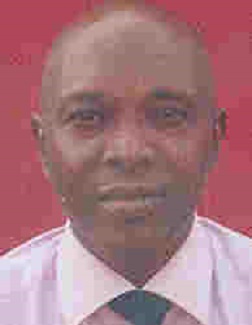 I welcome you to the Academic Staff Establishment Sub-Unit of Personnel Affairs Unit. The responsibilies and functions of the sub-unit are summarized below:
I welcome you to the Academic Staff Establishment Sub-Unit of Personnel Affairs Unit. The responsibilies and functions of the sub-unit are summarized below:
Preparations of papers and servicing of the meetings of the 's Appointments and Promotions Committee (Academic) in matters relating to the Comfirmation of Appointments, Promotions, Transfers, Resignation of all Academic Staff. The preparation of periodic reports to Council on matters relating to appointments and promotions/study leave of members of academic staff;
Acting as Secretary to Ad-hoc committee and serves as secretary to all interview/interactive session for the appointments of Academic Staff;
Any other assignments as may be directed by the Personnel Officer of the Registrar. Hi
Contact: Room 207, Personnel Affairs Unit Registrar's OfficeExtension Number: 2121
 |
OSUN STATE UNIVERSITY, P.M.B 4494, OSOGBO NIGERIA |
ACADEMIC CALENDAR FOR 2015/2016 ACADEMIC SESSION
CALENDAR FOR 2014/2015 ACAEMIC SESSION
SEPTEMBER 2015
Monday, 21st September: Foundation Day
Wednesday, 2nd 22nd September: Consideration of Results at Departmental, Faculty and College Level
Saturday, 31st October: End of Result Processing to Senate
CALENDAR FOR 2015/2016 ACADEMIC SESSION
NOVEMBER, 2015
Monday, 9th November: Assumption of studies by Fresh Students
Monday, 9th November: e-Registration for all Students for Harmattan Semester 2015/2016
Monday, 16th November: Resumption for returning students/commencement of Lectures for all Students
Wednesday, 11th November: Orientation for fresh Students
Tuesday, 17th November: End of Orientation for fresh Students
Monday 23rd November: e-Registration ends for all Students
Tuesday, 24th – Tuesday, December 1st: Late Registration with Penalty
Wednesday, 2nd December: Late Registration with Penalty ends
DECEMBER, 2015
Monday, 7th December: Management Meeting
Monday, 8th December: College Board of Agriculture, Education, Health Sciences &Law.
Tuesday, 9th December: College Board (SET ,Management and Social Sciences, Humanities and Culture)
Tuesday, 9th December: Board of Postgraduate Studies
Wednesday, 10th December: Committee of Provosts, Deans and Directors.
Thursday, 11th December: Business Committee of Senate
Friday, 12th December: University Research Committee
Monday, 15th December: Management Meeting
Tuesday, 16th December: Matriculation of Fresh Students
Wednesday, 17th December: Library Committee/ Security Committee
Thursday, 18th December: Academic Planning sub- Committee/ Senate
Friday, 19th December: Staff- Students Colloquium
Monday 22nd - Sunday, 3rd January: End of the year Break
JANUARY, 2016
Monday, 4th January: Resumption after New Year Break and Continuation of Lectures
Monday 4th January: Management meeting
Tuesday 5th January: Board of Postgraduate Studies
Wednesday 6th January: Committee of Provosts, Deans and Directors.
Thursday 7th January: Development Committee
Friday 8th January: University Research Committee
Monday, 11th January: Security Committee
Thursday, 28th January: Senate
FEBRUARY, 2016
Monday 13th February: End of Lectures (Harmattan)
Monday, 18th February - Saturday, 20th: Revision week/ Lecture Free Week
Monday, 22nd February - Monday, 11th March: Harmattan Semester Examinations
Monday, 22nd February - Friday, 26th February: GNS Examinations
Wednesday 24th February: Security Committee
Monday, 11th March: End of Harmattan Semester Examinations
MARCH 2016
Monday 14th March - Sunday 20th March: Harmattan Semester Break
Wednesday, 21st March: e-registration for all Students for Rain Semester 2015/2016 Session
Wednesday, 21st March: Resumption/Commencement of Lectures for all Students
Thursday 17th March: Security Committee
Thursday 24th March: Staff-Students Colloquium
Thursday 24th March: Board of Postgraduate Studies
Thursday, 31st March: Late Registration with Penalty ends
Thursday, 31st March: Senate
APRIL, 2016
Monday 4th April: End of e-registration for Rain Semester
Tuesday April 5th - Tuesday April 12th: Late Registration with Penalty
Tuesday, 5th April: Finance Sub-Committee
Wednesday, 6th April: Special Meeting of Committee of Provosts, Deans and Directors
Monday, 11th April: Ceremonials Committee
Tuesday,12th April: Business Committee of Senate
Wednesday 13th April: Late Registration with Penalty ends
Wednesday, 13th April: College Board (Agriculture, Education, Health Sciences and Law)
Thursday, 14th April: Board of Postgraduate Studies
Friday, 15th April: Appointments and Promotions Committee (Administrative and Technical)
Friday, 15th April: College Board (Sciences, Engineering and Technology, Management and Social Sciences, Humanities and Culture)
Friday, 15th April: University Research Committee
Monday, 18th April: Security Committee
Thursday, 28th April: Senate
MAY, 2016
Wednesday, 4th May: Special Meeting of Committee of Provosts, Deans and Directors
Thursday, 5th May: Finance Sub-Committee
Monday, 9th May: Ceremonials Committee
Tuesday, 10th May: Business Committee of Senate
Wednesday, 11th May: College Board (Agriculture, Education, Health Sciences and Law)
Wednesday, 18th May: Security Committee
Thursday, 12th May: Board of Postgraduate Studies
Friday, 13th May: Appointments and Promotions Committee (Administrative and Technical)
Friday, 13th May: College Board (Sciences, Engineering and Technology, Management and Social Sciences, Humanities and Culture)
Friday, 13th May: University Research Committee
Thursday, 26th May: Senate
JUNE, 2016
Friday 17th June: End of lectures for Rain Semester
Monday 20th June: Saturday 25th June Revision week / Lecture Free week
Monday 27 June: Friday 15 July Rain Semester Examination
Monday 27 June: Friday July 1 GNS Examination
Wednesday 22nd June: Security Committee
Thursday, 30th June: Senate
JULY, 2016
Tuesday, 5th July: Faculty Board (Agriculture, Education and Law)
Wednesday, 6th July: Faculty Board (Sciences, Management and Social Sciences)
Thursday, 7th July: Faculty Board (Health Sciences, Engineering and Technology, Humanities and Culture)
Friday, 8th July: Ceremonials Committee
Monday, 11th July: Academic Planning Sub-Committee
Wednesday, 13th July: University Research Committee
Thursday, 14th July: Committee of Provosts, Deans and Directors
Friday 15th July: End of Rain Semester Break
Monday, 18th July: Management Meeting
Tuesday, 19ht July: Development Committee
Wednesday, 20nd July: Finance Sub-Committee
Thursday, 21st July: Business Committee of Senate
Thursday, 21st July: Library Committee
Wednesday, 27th July: Security Committee
Thursday, 30th July: Senate
AUGUST, 2016
Monday,1 August: Principal Officers Meeting
Tuesday, 2 August: College Board (Agriculture, Education and Law)
Wednesday, 3 August: College Board (Sciences, Management and Social Sciences)
Thursday, 4 August: Committee of Provosts, Deans and Directors
Friday, 5 August: College Board (Health Sciences, Engineering and Technology, Humanities and Culture)
Monday, 8 August: Principal Officers Meeting
Tuesday, 9th August: College Board (Agriculture, Education and Law)
Wednesday, 10th August: College Board (Sciences, Management and Social Sciences)
Thursday, 11th August: Committee of Provosts, Deans and Directors
Friday, 12th August: College Board (Health Sciences, SET, Humanities and Culture)
Monday 15th August: Commencement of Annual leave for Academic Staff
Monday, 15th August: Security Committee
Tuesday, 16th August: Library Committee
Wednesday, 17th August: University Research Committee
Thursday, 18th August: Academic Planning Sub-Committee
Friday, 19th August: Development Committee
Monday, 22th August: Staff-Students Colloquium
Tuesday, 23rd August: Board of Postgraduate Studies
Wednesday, 24th August: Committee of Provosts, Deans and Directors
Thursday, 25th August: Senate
Friday, 26th August: Finance Committee
Monday, 29th August: Management Meeting
Wednesday, 31st August: Management Meeting
Wednesday, 31st August: End of 2015/2016 Session
CALENDAR FOR 2016/2017 ACADEMIC SESSION
OCTOBER 2016
Monday, 3: Opening of e-Portal for registration and Payment of fees for all students
 |
OSUN STATE UNIVERSITY, P.M.B 4494, OSOGBO NIGERIA |
ACADEMIC CALENDAR FOR 2015/2016 ACADEMIC SESSION (AMENDED)
CALENDAR FOR 2015/2016 ACADEMIC SESSION
MARCH, 2016
Wednesday, 30th March – Sunday, 3rd April: Harmattan Semester Break
APRIL, 2016
Monday, 4th April: Resumption for Rain Semester
Monday, 4th April – Friday, 15th April: e-Registration for all Students for Rain Semester 2015/2016 Session
Friday, 22nd April – Friday, 29th April: Late Registration with Penalty
Monday, 11th April: Commencement of Lectures for Rain Semester 2015/2016 Session
JULY, 2016
Friday, 15th July: End of Lectures for Rain Semester
Monday, 18th July – Friday 22nd July: Lecture Free Week
Monday, 25th July – Friday, 19th August: Rain Semester Examination
Monday, 25th July – Friday 29th July: GNS Examination
SEPTEMBER, 2016
Thursday, 1st September: Commencement of Annual leave for Academic Staff
CALENDAR FOR 2016/2017 ACADEMIC SESSION
OCTOBER 2016
Monday, 3rd October: Opening of e-Portal for registration and Payment of fees for all students
Brief History of the Department
Nursing Science has being one of the courses proposed for the College of Health Sciences at the point of establishment but the decision to run the programme was actualized in 2014 when the National Universities Commission (NUC) was invited and visited for “Resource Verification” to confirm the preparedness of the University to mount the programme. Prior to this, a team of Academics in Nursing assisted in developing the curriculum using the NUC Minimum Academic Benchmark Standard (BMAS) and the Nursing and Midwifery Council of Nigeria’s Standard for Education and Practice (2010) and other relevant curricula (NMCN’s General Nursing and Midwifery curricula and the West African Health Examination Board Curriculum) as guide. Equipment for the Nursing and Midwifery Laboratories were also provided before the Resource Verification Exercise. Clinical sites for students’ clinical learning were identified and Memoranda of Understanding signed with the management of some facilities for clinical experiences of students, and more are being processed with other sites. A departmental library to complement the University library was also provided. Following resource verification in 2014, the University continues to improve resources for the programme by providing more facilities (more offices, more classrooms, the Public Health Nursing Laboratory, e-library supported with e-books and e-journals for use of students and staff of the department; recruitment of more staff). The programme started with a student population of 72 though only 54 of the admitted students successfully passed to 200 level to get to the College of Health Sciences for the 2014/2015 session. The first set of students to the BNSc degree programme was admitted to the College after the NUC Resource Verification Exercise and a positive report from the National Universities Commission for the 2014/2015, 2015/2016 and the students for 2016/2017 have just resumed at the University.
BACHELOR OF NURSING SCIENCES DEGREE PROGRAMME (BNSc )
1.0 Introduction
University education for the nurse within the global framework gives recognition to the professional requirement and challenges of responding to health and health care needs of diverse populations with different health care needs. The professional nurse with university education acquires appropriate knowledge to drive his/her competencies to provide quality care based on new evidence in meeting individual and group health care needs within the lifecycle framework. Providing quality care in a consistently changing health care system driven by evidence in the multidisciplinary environment of care also challenges the nurse in the 21st century to have a responsive education that prepares him/her to function in a technologically moderated environment. The nurse with university education in the Nigeria context would also be expected to function in the health team with high intellectual capacity to resolve peculiar health care needs of Nigeria citizens and yet have high capacity to perform in a dynamic global context of international education.
The BNSc degree programme, through liberal and professional education prepares the nurses who can engage in intellectual discourses and analysis, critical thinking, who can use evidence to inform judgments and communicate thoughts clearly within the context of appropriate value clarifications. The graduate of the BNSc programme is capable of performing nursing skills in a variety of settings and across the three levels of primary, secondary and tertiary health care, therapeutically assisting individuals with diverse backgrounds and health problems. She/he will understand the social, psychosocial, and physical factors involved in the promotion, maintenance and restoration of health and will be able to analyse these factors in the context of how they translate to health needs while also relating them to appropriate health services, programmes and nursing care for the benefits of the consumers of health care. She/he will be able to assess health programmes in their broadest scope, with major emphasis on how such programmes or services contribute to the promotion, maintenance and restoration of health. She/he will be able to relate the role of the health services to the broader social system.
The Bachelor of Nursing Science (BNSc) degree programme is unique in the context of preparing polyvalent graduate nurses who are capable of meeting diverse health care needs of different people as individuals and groups across the life span yet in a health care framework that gives priority focus to primary health care. The graduate from the programme also has desirable base to practice in secondary and tertiary health care settings with high potentials for higher education and advance practice in an ever changing health care environment. These understanding of the nature of the graduate nurse from the BNSc degree programme and the national and international context of practice and professional growth gives guide to the philosophy, the contents of the curriculum and the implementation of the programme at the College of Health Sciences of the Osun State University.
2.0 The Philosophy of the Programme
The philosophy of the BNSc degree Programme derives
• The nature of human beings who are the consumers of health care and nursing services
• The professional context of nursing, nursing education and practice globally and in Nigeria
• The objects, vision and mission of the Osun State University
The Programme believes that:
(i) Human beings as bio-psycho-social beings have health and health care needs that are the focus of nursing; all functions and activities in professional nursing practice are directed at helping human beings as members of families and communities to achieve optimal health within the bio-psycho-social framework. It is believed that nursing is a helping process of interactions, working with people as individuals, families and communities to attain, maintain, restore and sustain optimal level of healthy living at the primary, secondary and tertiary levels of care.
(ii) Working within the health team, in which the individual, the family and the community play significant roles, is the most effective approach to promotion, maintenance and restoration of health.
(iii) professional nursing practice in the century and thereafter depends on programmes that can maximise knowledge from the arts, sciences, humanities and nursing for evidence based professional practice as depicted by involvement in research and continued acquisition of new knowledge and promotion of self development through self-directed learning by graduates
(iv) the roles and responsibilities of the nurse are changing and a professional nursing programme should build capacity of learners in analysing the change process, in deciding on change which is desirable or undesirable, possible, probable, or impossible, and in accepting responsibilities to take action for what would be needed to support change.
(v) The nurse, prepared for professional nursing practice through liberal and professional education and capable of using multiple resources (human and material) should have high competence in helping the individual, family and community to manage their health benefitting maximally from health care services with the nurse doing this through the use of the analytic-synthetic process, the application of appropriate technical skills and feeling response, and in cooperation with other disciplines.
(vi) For the nurse to engage in professional practice that will be protective of consumers of nursing services, he/she must be highly knowledgeable to be able to engage in the cognitive analytic-synthesis process, and must be highly competent as to efficiently apply appropriate technical skills using up-to-date technology in helping clients and must be highly responsive to human feelings as he/she works in cooperation and collaboration with clients and other health and social science disciplines in the multi-disciplinary health care environment .
(vii) The education of the nurse to meet the demands of changing health care needs of individuals, families and communities in a rapidly …..changing
(viii) Nursing is a science that is based on the knowledge of behaviors that enable changes in the client system to be monitored by utilizing the scientific method of inquiry whilst providing nursing intervention to individuals, families, groups and communities at the primary, secondary and tertiary levels of health care.
(ix) Professional nursing education is built upon a theoretical base that seeks to develop continuous self-directed practitioners who will advance and test knowledge on which practice is based. Current health care demands require an innovative approach in professional preparation, and a curriculum that is responsive to the changing health needs of the society.
(x) Learners should be assisted in using relevant and proven learning methods that support problem solving based on rational knowledge moderated by emerging trend in technology.
3.0 The Aim of the Programme
The programme aims to develop highly competent nurse clinicians that will service health care needs of people in a scientifically responsive environment and can professionally advance their practice through continuous self-directed learning and higher education.
4.0 The Objectives of the Programme
1. To uphold the academic standard of Osun State University that is highly competitive in meeting national and international requirement as such speaks to the nature of nursing education and practice.
2. To provide a teaching-learning environment that is facilitatory to wholesome development of students and faculty.
3. To promote the institutionalization of the team concept in teaching and service delivery adopting efficient use of technology for optimal outcomes for students and consumers of health care services.
4. To mentor students into leadership responsibilities by facilitating their participation in group and professional association activities.
5. To develop problem solving potentials and research interest of students by exposing them to problem situations and by mentoring them through the research process and in conduct of research projects.
6. To graduate professional nurses capable of giving high quality nursing care to individuals and communities of diverse backgrounds, and in a variety of social and cultural settings.
7. To cooperate with relevant bodies to advance nursing knowledge especially as such relates to improved learning and improved practice by the students and graduates
8. To support the participation of faculty members and students in University and professional affairs.
9. To evaluate the educational programmes of the department in the light of:
i. the educational objectives;
ii. the health needs of the nation;
iii. the needs of the learners
iv. emerging trends in nursing education globally; and
v. emerging trends in curriculum development and implementation
10. To sustain active recruitment process through the quality of programme.
11. To develop and maintain audio-visual, and other learning resources.
12. To formulate future plans and seek funds to maintain high educational standard and training programmes for improved performance of staff in the programme.
5.0 LEARNER FOCUSSED OBJECTIVES.
The student, on completion of the programme, should be able to demonstrate verbally, in writing and practice the following:
A. Knowledge of:
1. Physiological and psychosocial determinants of health and health status
2. Patho-physiological determinants of diseases
3. The scientific principles and nursing theories that are the basis of nursing care of individuals and groups of all ages and of diverse health status in a variety of physical and social settings;
4. The nursing process and standardized nursing language;
5. The communication process and group dynamics;
6. The process of scientific inquiry; and
7. The functions of members of the health team and their inter-relatedness and interdependency
8. Application of information technology in nursing care
9. Economic dimensions of health care programming and health care access.
B. Skills in:
1. Health assessment of individuals
2. Identifying health needs; planning and giving comprehensive nursing and health care to individuals of all ages in a variety of settings.
3. Applying basic scientific, social, medical and nursing theories, principles and concepts in the practice of nursing.
4. Selecting appropriate health and nursing interventions, and performing technical skills with maximal safety.
5. Effective communication by organising thoughts and expressing such in manners that could be easily comprehended.
6. Planning and effecting health promotion, disease prevention and health restorative activities.
7. Working cooperatively as a member of the health team in Primary Health Care by:
i. Sharing information;
ii. Accepting responsibility and limitation willingly;
iii. Participating in group activities;
1. Utilising standard protocols in giving health care.
8. Applying appropriate evaluation tools and instituting desirable changes.
9. Utilising information communication technology in information management, client education and self development.
C. Attitude that:
1. Recognises the essential worth of the individual through her interpersonal responses.
2. Appreciates varieties in behaviour which may influence the care of the individual; and the family.
3. Shows commitment to the role of nurse and to the nursing profession.
4. Shows sense of responsibility for self-direction and personal growth.
5. Shows respect for the rights of his/her clients as individuals and groups.
6. Reflect positive disposition to use of technology in all aspects of life
6.0 FUNCTIONS THAT WILL BE PERFORMED BY A GRADUATE OF THE BACHELOR OF NURSING SCIENCE
1. the graduate nurse will engage in direct patient care. This involves:
(a) making appropriate health, physical assessment and nursing diagnoses of individuals through the use of:
i. the acquired observation skills and sensory perceptions ; and
ii. simple diagnostic equipments and procedures in client assessment;
(b) making plans related to identified diagnoses;
(c) giving appropriate treatment in Primary Health Care and Emergency and other care situations and making referrals as necessary for further in depth care.
(d) using obtained data and relevant guidelines to make appropriate care plans for the individual and groups and evaluate the effectiveness of the plan through further observation.
(e) communicating significant information from observed data to appropriate member of the health team.
(f) incorporating the medical plan into nursing activities which are based on safe practices supported by scientific principles and concepts;
(g) assisting individuals in identifying realistic health goals and in planning for ways of achieving or maintaining optimum health.
(h) assessing the limitations and capabilities of individuals in assuming responsibilities for personal care, and the degree of assistance from the nurse that will be useful at all levels of care.
(i) provide nursing care to clients/patients in secondary, tertiary and other health care settings working within the scope of role assignments in the health care team.
(j) performing needed technical skills with refined dexterity and feeling response.
2. He/She will teach and demonstrate high quality nursing care to students, health care personnel, patients and families by:
(a) Identifying individual learning needs and formulating appropriate learning content and method;
(b) Using appropriate educational psychological principles and evaluating and revising teaching plans according to progress made in learning;
(c) Precepts through his/her exceptional positive health practices.
3. He/She will function as a leader by:
(a) Recognising his/her own personal behaviour and needs.
(b) Creating an environment conducive to the promotion of high quality nursing care.
(c) Understanding the role of the various members of the health team, thereby planning responsibility and supervision accordingly.
(d) Organising and implementing team work, and working effectively with people.
(e) Making nursing decisions based on pertinent data and scientific principles.
(f) Understanding institutional policies, legal consideration and professional ethics.
(g) Accepting responsibility for his/her own actions.
(h) Identifying his/her own capabilities, responsibilities and limitations.
(i) Coordinating the work of various health care and nursing teams.
(j) Applying nursing decisions in order of priority.
4. He/She will serve as an effective member of the health team in the processes of defining, planning, executing and evaluating the total health plan for members of the community.
5. He/She will initiate research and also work with other members of the health team in multidisciplinary research projects.
6. He/She will interpret nursing activities to groups within and outside the professional health teams.
7. He/She continues to learn by:
(a) continuous participation in the field of inquiry;
(b) acquiring new knowledge and new experience for continuous professional growth and development;
(c) using her potentials for graduate study;
(d) continually questioning the basis for defining nursing activities.
8. He/She will function as a change agent by:
(a) constantly evaluating the milieu in which she practices;
(b) identifying factors which affect the direction of nursing and the area of nursing
chiefly affected;
(c) deciding on change that is imminent and planning strategies for incorporating
this into existing structures;
(d) working with others in the assessment, introduction and evaluation of change.
(e) creatively using technology to moderate all aspects of learning and professional
practice
ADMISSION AND GRADUATION REQUIREMENTS
Admission to Part I, BNSc programme:
Candidates may be considered for admission to Part I, BNSc degree programme after passing at the required level of the University Matriculation Examination (UME) of the Joint Admission and Matriculation Board (JAMB) and the University moderated post-JAMB selection examination provided they obtain a pass in the Senior Secondary School Certificate Examination of the West African Examination Council(WAEC) or National Examination Council (NECO) or its approved equivalent at Credit Level in at least five (5) subjects including English Language, Mathematics, Chemistry, Biology and Physics; and provided that all five subjects are taken and passed at one sitting.
Exemption from Part I, BNSc Programme (Direct Entry):
Candidates for admission to Part II, BNSc Programme by direct entry who are exempted from the Part I, BNSc programme are in the following categories:
i. Candidates who have satisfied the Senior Secondary School Certificate requirements for admission into this university (i.e five credit passes as stated in 7.1 above, and who in addition obtain passes in at least two science subjects including Biology/Zoology, Chemistry and Physics at the General Certificate of Education, Advanced Level or the Higher School Certificate, Principal level or at any other equivalent examinations approved by the Senate of the Osun State University.
ii. Candidates who are holders of the R.N. Diploma of the Nursing and Midwifery Council of Nigeria, or its equivalent as approved by the Senate the Osun State University who have passed at the required Credit level in the Senior School Certificate Examination of WAEC or NECO or its approved equivalents in at least five subjects including English Language, Biology. Chemistry, Mathematics or and Physics and one other subject.
iii After successfully completing a Bachelor of Science degree course in Osun State University or any other University, a candidate may be considered for admission into the BNSc. degree of the University provided such a candidate satisfies the appropriate admission requirements as prescribed in 7.2.(i) above.
7.3 Transfer from other Faculties of Osun State or other Universities:
Candidates who have satisfied the Senior Secondary School Certificate requirements for admission into this university (i.e. 5 credit passes as stated in 7.1 above, and who in addition has passed all the courses expected in part I of the BNSc degree programme with a GPA of not less than 4.0 may be allowed to transfer to part II of the programme.
Duration of the BNSc Degree programme
The BNSc degree programme shall run for five (5) academic years for Unified Tertiary Matriculation Examination (UTME) entry candidates and for four (4) years for direct entry candidates depending on a student’s entry qualification.
Programme Format
Mode of study - candidates are required to register fulltime.
Type of course system – A modified course credit system will be adopted. Courses offered outside the College of Health Sciences will follow the regulations binding the offering of such courses. For all courses in the department additional information are provided. There are courses that run over the session as part I in the first Semester and part II in the second semester.
Course coding system – A system identifying a course using the combination of 3 letters and
3 digits according to UNIOSUN standard is used. The 3-letter designation of NSG will be for all courses offered in the Department of Nursing Science while the first of the three number digits denotes the level. The same principle applies to courses offered in other departments in the College.
Evaluation
Formative evaluation through Continuous Assessment for lectures, tutorials and practical adopting various methods will constitute 30% of the year grade for every course. Summative evaluation in form of final examination covering theory, projects and practical examinations shall be conducted for all courses at the end of every year.
***Candidates to sit for the second and third professional examination for Midwifery and Public Health Nursing by the Nursing and Midwifery Council of Nigeria and West African Health Examination Board respectively when students fulfil all requirements. Candidates take responsibilities for funding of professional examination.
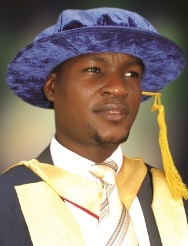 Dr. OYEYIPO Ibukun
Dr. OYEYIPO Ibukun
Head of Department, Physiology
Email:
On behalf of every member of staff, I heartily welcome you to the Physiology Department. As one of the foundation Departments in the College of Health Sciences and indeed the University, we strive to uphold the Philosophy of the University and College, which is to raise men of integrity and who are sound in knowledge.
Why study Physiology? Physiology provides a wide range of career opportunities. It also forms a core discipline for most, if not all medically oriented professions such as Medicine, Dentistry, Physiotherapy, Nursing to mention but a few.
Physiology may look like an abstract and wide subject but it is our intention to make it fun and exciting to all our students. It is believed that at the end of their stay in the Department, they would have acquired enough competence in Physiology through appreciating the various mechanisms through which the body performs normal functions.
This webpage contains basic information that will assist you in familiarizing yourself with the Department.
PROGRAMME PHILOSOPHY, OBJECTIVES, COMPETENCIES AND SKILLS
PHILOSOPHY
The philosophy of the undergraduate physiology programme is to train students in theoretical, practical and applied physiology so that they can utilize the basic knowledge for future problem solving and other applications – like practice of medicine, nursing, pharmacy, physiotherapy, etc. the graduates should be able to function as entrepreneur whether in pubic service or self employed.
OBJECTIVES
i. To train students to acquire basic knowledge of physiological principles.
ii. To train students to acquire sufficient practical knowledge and practical skills in experimental physiology.
iii. To train students who will be able to apply physiology to life situations.
iv. To train students in physiological knowledge sufficient for them to proceed for further studies in related fields of specialization.
v. To train students who can adapt themselves after schooling, to various life situations including entrepreneurship.
COMPETENCIES AND SKILLS
In addition to the subject specific knowledge enumerated above, students on completion of the course of study should acquire the following levels of competence and skills.
i. The students should be trained to achieve cognitive or intellectual abilities to study physiology of ever-increasing modern knowledge on their own during and after the training.
ii. The students should attain practical proficiency and skills such as all basic practical topics in each of the physiology benchmark outlines stated above.
iii. The students should acquire enough practical skills that will enable them engage in physiology or physiology-related postgraduate study or research laboratory anywhere in the world.
iv. Students should have skills and ability to tackle new innovative cases and problem solving or development of new ideas.
v. Students should be able to retrieve and store information, including literature search, using computer as well as other retrieval media (current contents, index medicos, science situation index, excerpter medical, etc).
vi. Students should be able to learn scientific writing in all forms e.g. conference paper, poster presentation, thesis and dissertation, paper for journal publication, etc.
vi. Students should be able to acquire enough skills to us computer as well as long hand for data analysis, graphical preparation and presentation, statistics, word-processing, spreadsheet, internet,etc.
ADMISSION AND GRADUATION REQUIREMENTS
GENERAL
For admission into any of the first degree programmes of the University, a candidate shall be required to possess the following minimum qualifications:
1. Senior Secondary School Certificate (SSCE) or its equivalents with credit level passes in five (5) subjects at not more than two sittings. The candidate must also earn an acceptable score in the Unified Tertiary Matriculation Examination (UTME).
2. Candidates seeking admission by direct entry into the 200 level, must have at least five (5) O/L credits, two of which must be at Advanced Level or approved equivalents.
DEPARTMENTAL ADMISSION REQUIREMENT
UTME Candidates
Candidates seeking admission into B. Sc Physiology programme through the Unified Tertiary Matriculation Examination (UTME) mode must possess credit passes at Senior Secondary School Examination (SSCE) conducted by West African Examination Council (WAEC) or National Examination Council (NECO), General Certificate Examination (GCE) at Ordinary Level or its equivalent in Mathematics, English Language, Biology, Chemistry and Physics at not more than two (2) sittings and an acceptable pass mark at the UTME conducted by Joint Admission and Matriculation Board (JAMB). Such candidate must also satisfy the post UTME requirement of Osun State University.
Direct Entry Candidates
a. ‘A’ level passes in Chemistry, Physics, Biology/Zoology or related discipline may be accepted for direct entry admission into year two of B. Sc Physiology programme.
b. Candidates with Ordinary National Diploma in related Biological Sciences may also be considered for admission through direct entry mode of admission.
Post UTME Screening
All Candidates seeking admission into the University irrespective of their UTME scores shall be required to pass the University post UTME Screening test before being admitted.
Registration Procedure
(a) Students shall complete registration at the beginning of the semester.
(b) Any addition or deletion from the courses for which a student is formally registered must be made with the consent of the course coordinator.
(c) A student may be allowed to withdraw from a course by the course administrator before a third of lectures have been given. Such a student who withdraws after this time or who fails to sit for examination without reasons acceptable to the appropriate Departmental/Faculty/College Board shall be deemed to have failed the course. A Grade point of 0F shall be recorded for the student in the course.
(d) Late registration in the course may be allowed with penalty of up to 4 weeks after the commencement of registration.
Duration of Degree Programmes
The minimum number of years to be spent to be awarded a first degree in a programme of study in non-professional area in the university shall be four years (or three years minimum for direct entry candidates). Registration shall not exceed an additional 50% of the duration of the programme if the student fails to graduate within the minimum number of years.
GRADUATION REQUIREMENTS
To qualify for the award of a degree of Osun State University, a student is required to have:
(i) completed and passed the prescribed number of units including all compulsory courses specified by the University.
(ii) completed and met the standards for all prescribed compulsory, required and elective courses totalling 120 credit units.
(iii) obtained the prescribed minimum CGPA.
MEET OUR STAFF
 Dr. Oyeyipo I. P. Senior Lecturer/HOD |
Mrs Oladokun O.O. Lecturer I |
Dr. Obembe O.O. Lecturer I |
Mr Usman T.O. Assistant Lecturer |
Mr Osuntokun O.S Assistant Lecturer |
| Mr Adeyemi D.H. Assistant Lecturer |
Mr Adedokun K.I. Assistant Lecturer |
Miss Awonuga M.A.M. Principal Technologist |
Mrs Salam A.M. Laboratory Technologist I |
Mr. Osuolala A.D. Senior Laboratory Assistant |
More...
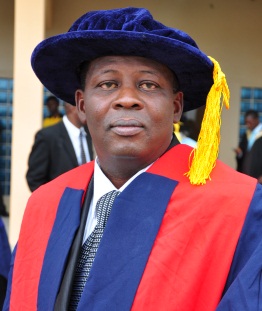 UNIOSUN DEVELOPMENT OFFICE is conceived as a unit saddled with the responsibility to secure philanthropic support for the University.
UNIOSUN DEVELOPMENT OFFICE is conceived as a unit saddled with the responsibility to secure philanthropic support for the University.
This includes producing and implementing a strategy to perfect the University’s self sustenance programme; building a meaningful relationship with stakeholders and facilitating other resource required for effective and long lasting alumni relations, corporate communications, strategic fundraising, and advancement services.
The ultimate task is to raise financial and material resources to augment the government subvention which by day-by-day is dwindling even as the university is growing.
Specifically, the objectives of the Development Office are to:
- Ensure financial self-sustainability of the University
- Identify and mobilize strategic resources for the Development of the University
- Project and promote positive image of the University
- Develop and sustain a dynamic and effective data base of the Alumni
- Cultivate and promote mutually beneficial relationship with the Alumni and other relevant stakeholders
- Identify and promote good relationship and partnership with the existing and potential donors
- Facilitate partnership with individuals, private and public sectors
- Support the attainment of excellence in teaching, learning and research as well as community service
- Solicit and receive gifts, legacies, donations and endowments on behalf of the University
- Mobilize local and community supports for the University
- Organize and coordinate professional training for the staff of University and relevant stakeholders.
The Office is headed by a Director, Professor Siyan Oyeweso, FHSN
Please, note that your contribution to educational development has significant impact in the lives of our students being trained as graduates capable of impacting positively on their environment.
+234(0)8078123895
developmentoffice[at]uniosun.edu.ng
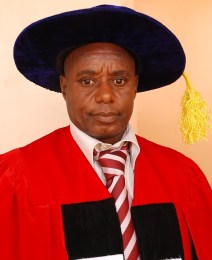 Prof. Bayole Rasheed OLOREDE, B.Sc., M.Sc., and Ph.D (U.I)
Prof. Bayole Rasheed OLOREDE, B.Sc., M.Sc., and Ph.D (U.I)
Provost, College of Agriculture
Email:
Prof. Bayole Rasheed OLOREDE, a Professor of Animal Science is a native of Iragbiji, Boripe Local Government, Osun State of Nigeria. He has B.Sc., M.Sc., and Ph.D degrees in Animal Science from University of Ibadan, in 1986, 1990 and 1998 respectively. He became a Professor in 2005 and was acting H.O.D., Animal Science from 2002 to 2004 at Usman Danfodiyo University Sokoto and at Osun State University, 2009 – 2011. [ Read More...]
![]()
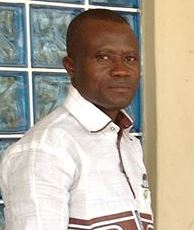 Dr. Sunday Bankole Adeyemi, B.Sc, M.Sc, PhD
Dr. Sunday Bankole Adeyemi, B.Sc, M.Sc, PhD
Acting Dean, Faculty of Education
![]()
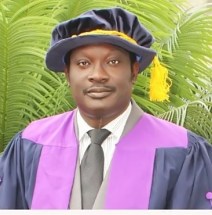 Professor ALEBIOSU Christopher Olutayo, BSc, MBChB, FWACP
Professor ALEBIOSU Christopher Olutayo, BSc, MBChB, FWACP
Provost, College of Health Sciences
Email:
Professor ALEBIOSU Christopher Olutayo is a fellow of the West African College of Physicians and an awardee of the Nigerian University Commission Award for indigenous research in 2004. He has also won competitive training fellowship awards from the World Diabetes Foundation Fellowship/International Diabetes Federation Fellowship Award (2003), International Society of Peritoneal dialysis Fellowship Training (2005) and IDF-BRIDGES Translational Research Grants Course, Ghana, 2008. [ Read More... ]
![]()
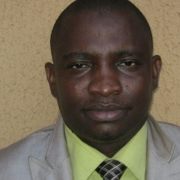
Dr Adebimpe W. Olalekan MBBS, MPH, FWACP, FRSPH, MNIM
Acting Dean, Faculty of Basic Medical Sciences
Email:
Dr. Adebimpe Wasiu Olalekan received his MBBS degree in 1998 from the University of Lagos, Masters in Public Health degree in 2005 from the University of Benin, and the Fellowship of the West African College of Physicians in 2008 in Public/Community Health. He is the Ag. Dean, Faculty of Basic Medical Sciences of the University. [ Read More... ]
![]()
COLLEGE OF HUMANITIES AND CULTURE

Dr. AKOH Ameh Dennis, B.A, M.A, Ph.D
Acting Dean, Faculty of Humanities
Email:
Dr Akoh is an Associate Professor of drama and critical theory in the Faculty of Humanities, Ikire Campus. He attended the universities of Jos and Ibadan, Nigeria where he also taught for some years. He was Head of the Department of Languages and Linguistics of Osun State University (2010-2012); Sub-Dean (2006-2009) of the Faculty of Arts and Humanities at the Kogi State University, Anyigba, Nigeria where he taught for seven years...[ Read More... ]
![]()
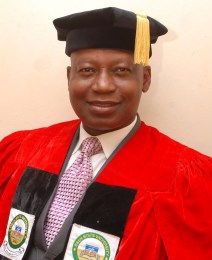 Prof. O. O. Oladele, a Professor of Commercial Law
Prof. O. O. Oladele, a Professor of Commercial Law
Provost, College of Law
Email:
Prof. O. O. Oladele, a Professor of Commercial Law is a member of Senate, the Chairman, Committee of Provosts, Deans and Directors, pioneer Provost, College of Law as well as Professor of business law of the Osun State University, Osogbo. He heads the Ifetedo Campus of the University. He is one of the leading scholars in securities regulation in Nigeria. [ Read More... ]
![]()
COLLEGE OF MANAGEMENT AND SOCIAL SCIENCES
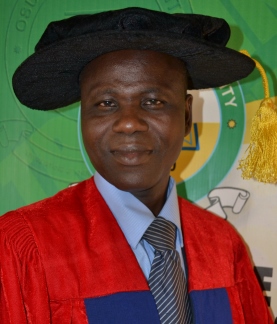 Prof. D.I. Akintayo, B.Sc (Hons), M.Sc, Ph.D
Prof. D.I. Akintayo, B.Sc (Hons), M.Sc, Ph.D
Provost, College of Management and Social Sciences
Email:
Prof. Akintayo is currently the Dean, Faculty of Management Sciences. He was born four decades ago at Odeomu township in Ayedaade Local Government Area of Osun State. He attended Community Grammar School. Ayetoro Tonkere between 1981-1985, where he obtained O/Level School Certificate with distinction. He further attended the then Oyo State College of Arts and Sciences (now Osun State College of Sciences), Ile-Ife between 1986-1988, where he obtained Advanced Level WAEC Certificate...[ Read More... ]
![]()
COLLEGE OF SCIENCE, ENGINEERING AND TECHNOLOGY
 Professor Oguntola Jelil Alamu, B.Tech., M.Sc., Ph.D
Professor Oguntola Jelil Alamu, B.Tech., M.Sc., Ph.D
Dean, Faculty of Engineering
Email: ,
Oguntola Jelil ALAMU is a Professor in the Department of Mechanical Engineering of Osun State University, Osogbo, Nigeria. He obtained B.Tech. degree in Mechanical Engineering at the Ladoke Akintola University of Technology (LAUTECH), Ogbomoso, Nigeria in 1998, M.Sc degree in the same discipline at the University of Ibadan, Nigeria in 2001 and a Ph.D degree in Mechanical Engineering (Energy Studies and Renewable Energy) at LAUTECH, Ogbomoso, Nigeria in 2008... [ Read More... ]
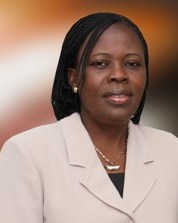 Dr. Janet Olubukola Popoola, B.Sc, M.Sc, Ph.D
Dr. Janet Olubukola Popoola, B.Sc, M.Sc, Ph.D
Acting Dean, Faculty of Basic and Applied Sciences
Email:
Dr. Janet Olubukola Olaitan, an Associate Professor joined the services of Osun State University, Osogbo, Nigeria in 2008. She graduated with a Bachelor of Science in Microbiology from Lagos State University in 1992 and subsequently Master of Science and Doctor of Philosophy in the same discipline in 1997 and 2005 respectively from University of Ibadan. Dr. Olaitan started her carrier as an Assistant lecturer with University of Agriculture, Abeokuta (UNAAB) in 1999 and rose to Lecturer I... [ Read More... ]
THE POSTGRADUATE COLLEGE
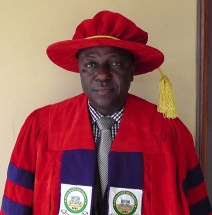 Professor A.W. Gbolagade, B.Sc (Ilorin), M.Sc (Ife), PGD and Ph.D (Ilorin)
Professor A.W. Gbolagade, B.Sc (Ilorin), M.Sc (Ife), PGD and Ph.D (Ilorin)
Provost, The Postgraduate College and Provost, College of Science, Engineering and Technology
Email:
Prof. Alagbe Wasiu GBOLAGADE, a Professor of Mathematics, obtained the Bachelor of Science (B.Sc) degree in Mathematics with Second Class Honour Upper Division from the University of Ilorin, Ilorin in 1986 and Masters of Science (M.Sc) degree in Mathematics from Obafemi Awolowo University, Ile-Ife in 1990. In addition, he obtained a Postgraduate Diploma in Computer Science from Ladoke Akintola University of Technology, Ogbomoso in 1994 and Doctor of Philosophy (Ph.D) degree in Mathematics from University of Ilorin, Ilorin, Kwara State in 1997. [ Read More... ]
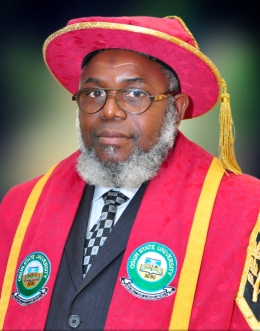
Prof. Bashiru Adekunle OKESINA, MBBS (Lagos), FPMCN, FWACP
Email:
Professor Bashiru Adekunle Okesina, a Chemical Pathologist, was born on October 11, 1954.
He graduated with Bachelor of Medicine and Bachelor of Surgery (MBBS) from the University of Lagos in 1980. He became a Fellow of Postgraduate Medical College of Nigeria in 1988 and Fellow of West African College of Physicians in 1989. [ Read More... ]
![]()
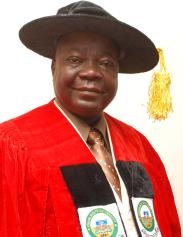 Dr. Julius Olusakin FANIRAN, B. A. (Hons), M. PA (Ife), Ph.D (Ib.), MNIM, FCPA
Dr. Julius Olusakin FANIRAN, B. A. (Hons), M. PA (Ife), Ph.D (Ib.), MNIM, FCPA
Email: ,
Dr. Faniran was born on September 6, 1956. He had his primary education between 1962 and 1967, his secondary education between 1968 and 1972, National Diploma in Secretarial Studies at The Polytechnic, Ibadan between 1974 and 1976 and his first degree between 1977 and 1981 at the University of Ife, Ile-Ife where he bagged and honours degree in English Language. [ Read More... ]
![]()
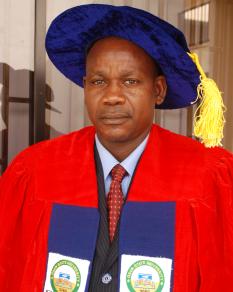 Mr. Fatai A. LASISI, B.Sc. (Hons), MBA (Ife), ACTI, FCA, ICAN
Mr. Fatai A. LASISI, B.Sc. (Hons), MBA (Ife), ACTI, FCA, ICAN
Email: ,
Alhaji Fatai Adebayo Lasisi is a fellow of the prestigious Institute of Chartered Accountants of Nigeria (ICAN) and an Associate of Chartered Institute of Taxation (CITN). He graduated from University of Ilorin with a B. Sc. (Hons) degree in Public Administration with a Second Class Upper Division. He was awarded with the Departmental prize for the best student in the Department in 1986. He also bagged a Masters degree of Obafemi Awolowo University, Ile-Ife.[ Read More... ]
![]()
 Mr. Ajibola Maxwell OYINLOYE B.Sc, M.L.S.
Mr. Ajibola Maxwell OYINLOYE B.Sc, M.L.S.
Email:
The University Librarian of Osun State University, is Mr. Ajibola Maxwell Oyinloye, a native of Ilesa in Osun State, was born on 15 August, 1956. He attended the Usman Dan Fodio University, Sokoto (formerly University of Sokoto) and came out with B.Sc. (Hons.) Physics Second Class, Upper Division and also has M.L.S from the University of Ibadan in 1985....[ Read More... ]
1. Project 106511: Sustainable production and utilization of the indigenous vegetables of southwest Nigeria for economic empowerment(NICANVEG). Project Website: http://www.uniosun-nicanveg.org/Home_Page.html
The project is undertaken under the Canadian International Food Security Research Fund (CIFSRF) with the financial support of the International Development Research Centre (IDRC), and the Government of Canada, provided through the Department of Foreign Affairs, Trade and Development (DFATD). On underutilized indigenous vegetables, the research is using a participatory approach involving rural women, farmers and scientists to conduct the ecological impact assessments of crop diversification, economic and financial analyses, conventional propagation studies using stem cuttings and seeds as planting materials, product processing and preservation and value addition studies. A major focus of the research is training of poor rural women and farmers on production, processing, utilization and marketing of underutilized vegetables for food security and financial empowerment.
This project is a joint collaboration among four (4) partners, the Osun State University and Obafemi Awolowo University in Nigeria and the University of Manitoba and Cape Breton University in Canada. Both Nigerian Universities are strongly supported by participation of the FADAMA group. The research consists of expertise in food science, soil science, horticulture and plant science, economics, gender specialists, agriculture extension, and rural sociologists. The The Nigerian Universities are conducting the entire field work at sixteen (16) field sites in Nigeria. Project training and scientific mentoring for key participants is being provided in Canada.
The Canadians teams; University of Manitoba and Cape Breton University, are providing short-term training platform for Nigerian scientists and students working on this project. The Cape Breton University is providing training in ecology, economics, marketing, and gender analysis and advice on project implementation, monitoring and reporting. The University of Manitoba is involved in training in soils, agronomy and food science and advice on project implementation, monitoring and reporting. The expertise of the third party (Helping Hands Resource Centre for Immigrants, Canada) in packaging research information, translating, disseminating and demonstrating the project findings through cooking workshops, food preparation training on leaf vegetables at the rural level will also benefit this project.
2.Knowing each other: every-day religious encounters, social identities and tolerance in south-west Nigeria
Project Website: http://www.birmingham.ac.uk/schools/historycultures/departments/dasa/research/knowing/team.aspx
Funded by the European Research Council (ERC), the research project maps out possibilities for the study of everyday religious encounter among the multi-religious Yoruba people of southwest Nigeria. In addition to more traditional historical and anthropological methods, it draws on an ethnographic door-to-door survey of over 2,500 respondents from different Nigerian states and from rural as well as urban communities which offers information on a wide range of topics. The project will focus especially on the topics of gender and marriage, youth and education, life and family histories, death and funerals as well as moral frameworks and meaning.
By exploring the ways in which different social identities are linked to dispositions and sensibilities that enable the avoidance or resolution of inter-religious conflicts, our research will develop comparative insights into different forms of tolerance in Yoruba society. We hope to explore whether there are tolerant dispositions or forms of habitus that will enable us to develop a comparative framework that can include forms of tolerance in other societies.
Also, while Yoruba religious debates are not free from relations of power, they are also earnestly engaged in the construction of meaning. The proposed research will explore religious discourse as a locus of lived engagement with moral frameworks, and of individual struggles for the creation and contestation of meaning, and it will seek to understand the specific as well as the general conditions under which meaningful discourse occurs.
3. Project 107983: Micro-dosing indigenous vegetables to combat poverty (Micro-Veg)
This project is funded by the Canadian Government IDRC-DFATD for 2015-2019. Chronic food insecurity is undermining development in Subsaharan West Africa. The general objective of the project is to increase food, nutritional, and economic security of smallholder farming communities in Nigeria and Benin. Specifically, we will accomplish this via accelerating the large-scale adoption of underutilized indigenous vegetables and improved soil fertility management practices. The specific objectives are to: (1) Develop technology capsule on fertilizer micro-dosing and water management technologies, value addition technology and seed production for indigenous vegetables. (2)Test, demonstrate and deploy two different models (Innovations Platform and Satellite Dissemination Approach) for reaching and benefiting more farmers with sustainable vegetable production and marketing innovations. (3) Scale up the technology capsule to advance indigenous vegetables production, increase yields, preserve soil and water ecosystems and enable fertilizer cost-saving. (4) Promote policy advocacy to integrate the successful scaling up model into local, national and regional food security programmes in the West African sub-region. Over a 36-month period, this project will support the generation of knowledge and innovations for large-scale positive economic changes in southwestern Nigeria and Benin.

